|
Welcome Danika! Thanks for taking some time to chat about writing. First, a few quick-fire questions: Snow or sand? Big dogs or small dogs? And which of your favorite foods has been difficult or impossible to get since COVID started? Snow or Sand? Snow. Big dogs or small dogs? Big dogs. *whispers* …or small dogs. SORRY! I can’t choose on that one. As for the food that I miss that I haven’t been able to get since lockdown, it would have to be movie theatre popcorn. (And movies, to be honest!) "Big dogs or small dogs? Big dogs. *whispers* …or small dogs. SORRY! I can’t choose on that one." Many writers are unsure of the next steps once they have completed their first novel. They might wonder whether to query agents, reach out to smaller publishers, or look into options for self-publishing. What was your journey of becoming an author like and is there any advice you have for writers who are just at the beginning of their careers? My journey is pretty unique to me… which makes it completely NOT unique for a writer. That’s something I’d remind every young author. It doesn’t matter how much you plan it out, the journey to publication is going to be different for everyone. My second piece of advice is: finished is better than perfect. As for my own journey, I started out with a book that I wanted to publish. I queried for months, and although I got plenty of good feedback from agents who looked at it, I didn’t have anyone willing to sign. I wrote more books… time passed. And when I felt that I had a manuscript that was even better than my first, I queried again. This time I had a number of agents reach out, and I ultimately signed with my first agent: Morty Mint of Mint Literary here in Canada. "It doesn’t matter how much you plan it out, the journey to publication is going to be different for everyone. My second piece of advice is: finished is better than perfect." We had a really good run together for about five years and Morty sold a number of my titles. One interesting fact is that while Morty was putting my thriller Edge of Wild (Stonehouse, 2016) out on sub, I sent a completely different novel, All the Feels (Macmillan, 2016), in the young adult genre, into an open submission… and it was selected for publication by Macmillan. Suddenly I had two books, in two completely different genres, and they were BOTH getting published the same year. "One interesting fact is that while Morty was putting my thriller Edge of Wild (Stonehouse, 2016) out on sub, I sent a completely different novel, All the Feels (Macmillan, 2016), in the young adult genre, into an open submission… and it was selected for publication by Macmillan." In the time since 2016, Morty has retired and I signed with my current agent, Moe Ferrara of BookEnds Literary. I have several more YA and thrillers out, and I’ve had many successes along the way. One thing I was particularly proud of was having Switchback selected as one of the “Best YA Books of 2019” by the Canadian Children's Book Centre. See? Different paths… different journeys… all with the same end result: publication. You have been able to find success with titles in both YA and Adult Mystery. A lot of ‘new’ writer advice suggests finding one genre and sticking with it. How were you able to navigate writing in two very different styles of books while maintaining your brand and identity as an author? For me, the book tells me what genre it is, and I just follow the characters along, scribbling as fast as I can. Once I hit flow, I find it quite easy to stay in the right “voice”. My thrillers are suspenseful and highly descriptive. My YA are edited down to the bone, with dialogue taking a much bigger role. I don’t consciously think about these differences as I write. They just naturally occur. As to “sticking to one genre” I happen to like exploring and writing in multiple genres—in fact, I just put a science fiction novel out on sub—so I’ve never really tried to limit myself. This works for me, but I could see it being a challenge for some authors. Again, I think whatever works… works. My brand is a Canadian author who happens to write multiple genres. It does require a little bit of tone-shifting during promotions for books, since my thrillers are quite dark. Strangely though, I’ve got readers who follow me quite avidly and read books by me in both genres. That always feels good! "For me, the book tells me what genre it is, and I just follow the characters along, scribbling as fast as I can. Once I hit flow, I find it quite easy to stay in the right 'voice'." Perhaps the most grueling aspects of being a writer is just that: writing! As an author who has finished and published more than a half-dozen books, can you share a bit about what drives you? Are their routines that help you stay productive? Is it a natural part of you or did you have to train yourself into that level of productivity? Writing gives me joy, so I find it quite easy to write and I’ll often lose track of time while writing. When I’m editing, however, I have to fight for every word. In those times, I set an alarm early and write before anyone else in my house is awake. I make myself complete a thousand words a day. It’s not actually that much, but it adds up quickly. Yes, part of this is training, but it comes down to the fact that I look at writing as a job. You have to get the words down and the only way to do it is to sit down and WRITE. I make my deadlines—all of them—and I remind myself that you can always edit garbage, but not blank pages. "You have to get the words down and the only way to do it is to sit down and WRITE. I make my deadlines—all of them—and I remind myself that you can always edit garbage, but not blank pages." Many of your books, including All the Feels, Internet Famous and Ctrl Z, explore how our lives online often intersect, overlap, and collide with our lives in the physical world. As a writer, what interests or concerns you most about the newer technologies that are emerging today? I am mostly quite technology-positive (if that’s even a word :), though I am quite careful about where I go online and what access I provide to strangers. Of course I have very serious concerns about things like the dark net and piracy and identity theft, but in a broader sense, my biggest concern is about how everyone interacts. To explain, when people wear a mask as an anonymous poster, they behave more horribly than they ever would be in person. You see it all the time with people being harassed, doxed and threatened. THAT lack of empathy, to me, is one of the biggest dangers. We have both spent time living near and exploring the Canadian Rockies. It seems that their impression has also made its way into our fiction! What other aspects of being a Canadian have influenced your work and what unique contributions do you think Canadian authors bring to the international writing scene? Since Macmillan is based in the US, I have a list of “Canadianisms” that I carefully and studiously remove from my early drafts. Overall, however, I simply assume that my perspective as a Canadian is intrinsic to my work. Many of my novels take place in Waterton Park, AB, where I grew up, and the whole sense of place—the mountains and the forests—is a character unto itself. My particular perspective, as someone who loves and wants to preserve the untouched areas of Canada, certainly filters into what I write. In a bigger sense, I think that Canadian writers as a whole have brought the Canadian perspective to the world. I’m proud to be part of that tradition. Can you give us a sneak peek of what your next major project will be? Any hints or perhaps a little snippet to get readers excited? Sure! I’m currently writing a ghost story. It has no title (as of yet), and the ghost rarely listens to my direction, but I’m having a blast writing him. Here’s a snippet: Too late, the dial tone buzzed in his ear, and he swore, setting the handset back into the cradle. There was no message; Grant didn’t have a machine for the house line. Whoever it was would have to call back. He hoped it was Caleb. The two of them needed to talk. There were chores to be done, and one person alone couldn’t do them. Grant winced. As angry as he was, he was going to have to come halfway on this, or there’d be no way for the farm to make it to spring. There was no money for a hired farmhand. It was him and Caleb working together or nothing. No use worrying about it. Just need to-- A faint creaking noise, like someone had opened a bedroom door on the second floor, interrupted his thoughts and Grant’s eyes widened. The house was empty… wasn’t it? “Caleb…?” Wind howled around the eaves in reply, while upstairs whatever it was had gone silent. The kitchen where Grant stood was cloaked in darkness, the only light sifting through the windows from the porchlight outside the window. Everything in the room shone blue and purple, black shadows stretching ominously into corners and up walls. An icy finger ran the length of Grant’s spine. “Just the wind,” he muttered uneasily, his voice loud in the quiet room. “Nothing to worry ab—” Another sound, like a scuffling footfall, interrupted. Grant’s chin bobbed and he looked up. A single floor divided him from Logan’s empty bedroom. It was the same room the boy had occupied from a week after his birth until the previous summer (and the awful day that so often visited Grant’s nightmares.) The bed and dresser, pictures and coverlet were the same as they’d been many months before, his absence preserved like a leaf between two pages of a book. Grant swallowed hard. I’m tired tonight. Done too much work. Ain’t slept in days. Another footfall echoed. Grant stumbled backwards, his legs banging against the cupboard in his haste. That sound had come from Logan’s room. No question. Between him and whatever had made the sound was a thin layer of plaster, wooden joists, floorboards, then… what? Shaking, Grant took a single step away from the window. The whole house was dark, but it no longer felt empty. Wind rose again and something creaked in the upper floor. “Caleb,” he called tremulously, “is that you up there?” There was no answer. The hair rose on his arms as Grant forced himself into the darkness. The faint light from the window didn’t fill this part of the house and the kitchen light switch seemed impossibly far away. Heart pounding, he forced his limbs to comply. The sound had come from his late son’s room. He was almost entirely certain of that, but that could mean anything. Couldn’t it? He reached the far wall and flicked on the light. A warm golden glow filled the kitchen and he let out a slow breath. It felt normal again. Fine even. Dirty dishes from the night before filled the sink, empty beer bottles lining the counter. Grant grimaced. Nothing at all. Freaking myself out over nothi-- A crisp footfall snapped directly overhead. Grant’s heart jumped to his throat, his chest heaving with barely constrained panic. What if there’s a prowler in the house? his mind demanded, but that made no sense. Unless… unless… The floor above his head creaked again—heel, toe, heel toe—and Grant’s stomach dropped. What if it’s Logan’s ghost? his mind whispered. What if he’s here… NOW? Last, but not least, where can readers find your books and keep up to date on your latest publications? My young adult titles are available almost everywhere books are sold. My thrillers are for the more discerning, so they’re available in some big box stores, but much more often in smaller indie bookstores. ALL of them can be found online! And if you’re ordering online, I’d encourage you to consider an independent bookstore rather than a massive chain. Indies really are the lifeblood of publishing. Details and information about upcoming releases is available on my website and on ALL of my social media accounts! Thanks for interviewing me, Josh! It was great to chat.
0 Comments
Welcome back Trey! It’s so great to have you back to talk about writing and your new book! As always, a few quick-fire questions: What is your favourite sequel of all time? What is the worst sequel of all time? And which stand-alone book or movie do you think deserves a sequel? Hi Joshua, and thanks for having me back! Whoa, great question, let’s see. This year I read both The Shining, and the sequel that I didn’t even know existed until the movie came out last year, Doctor Sleep. I’ve got to say, and maybe this is because The Shining has been too hyped up in my mind, but Doctor Sleep was better. A fantastic sequel, and a great book. "I’ve got to say, and maybe this is because The Shining has been too hyped up in my mind, but Doctor Sleep was better. A fantastic sequel, and a great book." Worst sequel is difficult though. There’s so many bad ones! Maybe Spiderman 3? I really loved the first movie with Tobey Maguire, and I didn’t mind the second one either. But by the third, I get what people were saying. It’s too weird. I think the Warcraft movie that came a few years ago deserves a sequel. I’m a big fan of the franchise, having played all the games since Warcraft I in the ‘90s, and I’ve read nearly all the books now. When the movie came, a lot of people were very excited, but I don’t think a single person in the world liked it. They just bit off more than they could chew, so I’d love to see them carry on with that and try to make something better. "I think the Warcraft movie that came a few years ago deserves a sequel. I’m a big fan of the franchise, having played all the games since Warcraft I in the ‘90s..." So since we met a few years back I learned a few things about you. One was that you grew up and worked in the same small city (Haugesund, Norway) that my family emigrated from. Tell us one thing most people don’t know about what it’s like to grow up in Norway! Sorry, I’ve got to correct you there, I didn’t grow up in Haugesund, but I have worked there on and off. It’s a beautiful little harbor town, if a little bit past its prime these days. If I was to try and describe it simply, I’d say growing up in Norway is simple. Simple and quiet. There’s not that many people, and we have a lot of space. I moved to the UK in my teens and remember being surprised by how huge the world really is, when you have millions of peoples, culture and society mixed in one place. It was an eye-opener, and I’d recommend it to anyone to move away from their tiny rural homestead for a while. "If I was to try and describe it simply, I’d say growing up in Norway is simple. Simple and quiet. There’s not that many people, and we have a lot of space."
The second book was definitely harder to write, no doubt. I like to think that’s because I tried harder, pushed myself harder and set a higher standard for myself. With the first book, I just sat down to write without giving it too much though, but with the second (and the third which will follow it) things have to make sense. That being said, I had the ideas for both book two and three straight after I wrote the first. They're in a series, though kind of separated from each other, but there’s an overarching story there that I had clearly in my mind as soon as book one was done. I think I wrote book two faster than one, and book three faster than both. You get to know your characters after a while, so it gets easier while still being difficult. "The second book was definitely harder to write, no doubt. I like to think that’s because I tried harder, pushed myself harder and set a higher standard for myself." You recently stated that, “My stories are always character-driven, because that’s where the conflict is, that’s where you can truly find excitement.” What are the ingredients of story-driving conflict and how can authors who can’t seem to get ‘the spark’ going fix it? The recipe for conflict in any story is simple:
"The recipe for conflict in any story is simple: (i) you need a goal, (ii) something that motivates that goal, and (iii) something that stops that goal being reached." The adventures of Agent Greer are high adrenaline narratives. However, just as in movies, it can’t all be explosions and car chases or else there is no narrative. (Ok, ok, yeah, Mad Max, I know…) So how do you keep up the suspense and tension without wearing out the reader? Peaks and valleys. I build up toward the excitement, pull back a little bit, and then turn it up again. I like to think about it like a horror movie: the idea that something might jump out at you is often scarier than the monster itself. I want to keep you at the edge of your seat, then give you some time to relax before we’re back to that edge. You write both horror novellas and novels which fall in the psychological thriller genre. How do you differentiate between horror and thriller? Second, what do you think readers (or writers) get wrong about the difference between the two? If everything goes according to plan, the next book I publish is a horror novella. In my eyes, thrillers are gripping and exciting, pulling you in and making you want to hurry on to the next page. Horror is terrifying and should almost have the opposite effect; you’re not quite sure you want to carry on reading, but you just can’t help yourself. Horror is more subjective however, and difficult to pin down which is probably one of the reasons the differences between the two become mixed. A lot of what Stephen King writes isn’t horror to me at all, yet he’s been the King (pun intended) for 50 years. "...thrillers are gripping and exciting, pulling you in and making you want to hurry on to the next page. Horror is terrifying and should almost have the opposite effect; you’re not quite sure you want to carry on reading, but you just can’t help yourself." Now that your sequel is finished, do you have another project on the go? Any plans for book three? Tempt us with some tantalizing hints if you’re willing to. I have this bad habit of drafting books much faster than I revise and edit them, so I usually always jump on a new thing while my books are with my editor or beta readers. Book 3, the final book in the series is written and being edited, and will hopefully be released faster than Book 2 was. I have a cast of three main characters, with Jordan Greer at the top, and each of my books has one of them in the center of the main conflict. In Book 3, it’s Greer who’s in trouble and that’s all I’ll say. Where can readers get a hold of your new book, A State of Despair? The ebook can already be pre-ordered on Amazon and the paperback will go live on December 1. Links to those can be found all over my social media and website of course, and for readers who just can’t wait, I’m still handing out a few advanced review copies over at TreyStone.com. Get one before they’re gone!
After he died we just got all the Good Guys teaming up like the freaking Avengers. Blech. (No hate on the actual Avengers, though, to be clear). As far as actual devastation goes, though, I have to say Brienne of Tarth in the books. IT WAS A FAKE OUT, I know that now. But I genuinely cried when I read that passage. She was my favorite in the books and in the show, and I was so upset when I thought GRRM killed her off. So, my current only-child cat’s name is Thorin Oakenshield (after the Tolkien character, of course). If I got a second cat I would name her Tali’Zorah, after everyone’s favorite quarian from Mass Effect! If my husband gets his way Tali will end up being a puppy, which sounds pretty great to me too! "If I got a second cat I would name her Tali’Zorah, after everyone’s favorite quarian from Mass Effect!" I recently read a blog post you wrote about the required (and/or forcibly acquired) virtue of patience as a writer. As you shared in your post, you are not a particularly patient person, nor am I. Yet we somehow managed to survive the publication process! What are some tips for writers in the ‘weary middle’ of this grueling journey? Oof, let me just say, writers, if you’re in that ‘weary middle’ right now, I feel you. Though, let’s be honest, there are about fifteen ‘weary middles’ throughout the writing and publishing process. You wait for feedback from beta readers, responses from agents you’ve queried, responses from editors you’ve been subbed to, the list goes on. My best tip is always to keep busy. Sink yourself into something new. For me it’s always a new writing project - something else I can fall in love with and let myself get distracted by while I’m waiting for [insert part of the process here]. "Oof, let me just say, writers, if you’re in that ‘weary middle’ right now, I feel you. Though, let’s be honest, But there’s the other half of patience too - the half where you’re being patient with yourself. Brainstorming/Drafting/Editing a novel takes time - weeks and months and years of it. So I think it’s also important to have hobbies outside of writing to help reset your brain a little bit. For me it’s fitness - kickboxing, weightlifting, all that good stuff. Maybe for you it’s the same, or maybe it’s running! Or knitting! Or puzzles! Whatever it is, my advice is to find something else you can sink yourself into aside from writing. "But there’s the other half of patience too - the half where you’re being patient with yourself. Brainstorming/Drafting/Editing a novel takes time - weeks and months and years of it." Time management can be a huge issue for writers. I constantly hear newer writers complain that they would write if they could only find the time. How do you manage to balance your career, your personal life, and writing schedule?
I am super lucky to have a really supportive husband who viewed my writing as a second job long before I even got an agent, which makes things easier. I also don’t have any kids, which I know makes things way easier. So, to sum up, no one has the time, everyone has to make the time. But the great part is, if you write for eight hours every day, sure, you will end up with a book. But if you only write for one hour? Twenty minutes? You can still end up with a book if you keep at it long enough! Write however much you can fit in without going absolutely crazy or shirking other important responsibilities, and don’t let other people bully you into thinking you’re “not a real writer” if you can’t squeeze in some massive, arbitrary word count every single day. Fantasy, as a genre, has historically struggled with diversity of representation. How does diversity play into your character cast and what advice might you give to writers who struggle with implementing this in a meaningful way? This is such an important question. I’ll start by saying I think this ties in with the world-building question below. Part of building a vivid and realistic world is populating it with vivid and realistic people. If all your fictional people look and sound the same, I think it’s safe to say you’re not doing that. The main cast of Among Thieves is made up of characters from every corner of my fictional world. "Part of building a vivid and realistic world is populating it with vivid and realistic people. If all your fictional people look and sound the same, I think it’s safe to say you’re not doing that." My biggest advice to other writers, though, would be to make sure you’re reading broadly in the genre. In other words, if all the fantasy authors you’re reading look a lot like me… you need to expand your selection. There are so many awesome fantasy authors of color out there! N.K. Jemisin, Sabaa Tahir, Tomi Adeyemi, R.F. Kuang, I could go on naming all day. I also think it is important to remember to make sure you're telling a story that's yours to tell. Ask yourself if you’re really the right person to be writing the story you’re thinking of writing. Lastly, make sure you seek criticism on your work early and often to make sure the representation present in your story is not harmful. Your first novel, Among Thieves, is set to be released in 2021 by Saga Press. It takes place in the Five kingdoms of Thamorr where Ryia Cautella is deftly navigating the criminal underworld of the port city of Carrowick. What inspired this story and what kinds of feelings are you hoping to awaken in readers?
Not to give too much away, but Among Thieves involves a high-stakes heist. I personally love a good heist in any genre. What tips do you have for building the mystery and suspense around a heist without letting it detract from the overall narrative? Let me tell you, it’s a tough balance, haha. You want to give enough info that the reader can follow what is happening without giving away all of the fun. The heist elements in Thieves went through about… ten(?) full rewrites to try to get that balance right. And god, I hope I got it in the end! My best tip for any story that has several complicated webs woven together (like a heist) is to outline. For Thieves I had a giant Excel spreadsheet with tons of rows and columns for all my plots and subplots, planning out every aspect of the heist. That meant having solid plans for how each individual character wanted each step of the heist to go so I could make sure their motivations and actions would be clearly blocked out and fit together with each major plot point. Then, of course, I made sure to have a solid plan for how things actually turn out. "For Thieves I had a giant Excel spreadsheet with tons of rows and columns for all my plots and subplots, Moral of the story, the most important part of building mystery is making sure you know all the secrets yourself. That way you can pick and choose which parts of the puzzle to reveal when. I don’t let any Fantasy writer get through a Q&A with me without talking about world-building. Talk us through your world-building process for the book. What were its evolutionary stages? How did it evolve? What was the greatest challenge you had and how was it resolved?
Where on the map is this particular kingdom located? What are some of the customs here? What sport or game is most popular? What kind of foods do they prepare? Holidays, religions, rulers, kingdoms they’re allied with - all of these things are crucial. Even if the details never make it into the pages of the actual book, you can’t make a world feel real to a reader if it doesn’t feel real to you. "Even if the details never make it into the pages of the actual book, For the world of Thamorr (the world in which Among Thieves is set) I actually had done a good portion of the world-building before I even started this particular story idea. The basis of the magic system and a good part of the geography actually comes from an old, dead project of mine. I’m a big fan of cannibalizing old projects for parts. The plot of that old story was not workable, but there were parts of this world that I still loved, so I stole them and built them up to ultimately create the world of Thamorr! The biggest struggle for me was deciding which pieces actually appear on the page and which don’t. I always want to put too much in the MS, which can get info-dumpy. Then I usually reel it back too much in my early edits and beta readers have no idea what is happening. Finding that balance is always a challenge for me. "The biggest struggle for me was deciding which pieces actually appear on the page and which don’t." Where can readers find more information about the release of Among Thieves and about your future works? Among Thieves is scheduled for release in early 2021, but does not have an official release date yet! I will keep everyone posted about Thieves and any future projects on my website, on my Facebook page, or my Twitter account. Also, don't forget to add Among Thieves to your Goodreads!
Sweet. I have a devilish sweet tooth, and have since I was a child. I was the kind of kid who reached into the cookie jar when no one was looking. I still do so today, but as an adult, no one can really stop me! There are a great many things that would pose a threat to one as curious as I in H.P. Lovecraft’s mythos. The most likely bane for my existence would be Yog-Sothoth. I feel like my current quest for knowledge would eventually, and undoubtedly, lead me to this Outer God. A being locked outside the universe that knows all that occurs in space-time would likely overload my brain, causing me to bleed from all facial orifices while incoherently sputtering the deepest secrets of all life. That is, until I would shrivel up into a mumbling husk doomed to be cast out into an unfeeling, unthinking void, with nothing but my long sought secrets to keep me company. "The most likely bane for my existence would be Yog-Sothoth. Your original artistic pursuit was in film and TV but you opted to focus your creativity on writing. In what ways has your training in film influenced you as a writer? Do you write screenplays as well or are you committed to the text-only format of books? There are many ways to tell a story. Visually, auditorily, or in written form. Film and TV focus on the visual and audio aspects, but everything always starts from the written format (script). My education in broadcast television allowed me to learn about how to create content for an audience. My writing could be the best work to ever grace this planet, but if no one wants to read it... well, it doesn’t really matter then, does it? I learned how to create a story from people who have been doing so professionally for a long time. Working with professionals like this allowed me to develop an understanding of how to create the kind of story that people want to experience. "There are many ways to tell a story. Visually, auditorily, or in written form. Film and TV focus on the visual and audio aspects, but everything always starts from the written format (script)." I no longer write scripts/screenplays. I used to in college, and shortly following college, but I discovered more freedom in more traditional styles of writing. I found the formatting for scripts and screenplays (interior vs exterior, types of shots, location and character names, etc.) to be a drag. Having to expend effort for such things for stories that I don’t plan to shoot seems like a waste of effort. Effort that would be better spent fleshing out lore and building a literary world. You and I are both Canadian authors which, if you walk through the average Chapters bookstore (pre-quarantine, of course) is fairly rare. What unique challenges has being a Canadian author brought to you? Are there any advantages you’ve found to living north of the US/Canada border?
"Canadians tend to be less inclined to push their way to success, For a similar reason, I feel that Canadians have an advantage on our home turf. Mark, an author I worked with recently, told me of a time he was doing a book signing for his work at a bookstore in Waterloo (his home town). That day, there was a promotion going on for a recently released Stephen King book, but Mr. King was not there to do any reader-interaction stuff. That day, Mark’s new book outsold Stephen King’s. All because he was a local author who came out to see his readers, and King didn’t. No offense to Stephen King, I’ve heard he’s a cool dude, I’m just saying that taking advantage of your home town and local bookstores can be a great boon! Especially when we can all return to our beloved bookstores in the, hopefully, near future. One of the things that many newer writers really struggle to do is to finish things. Perhaps they write three quarters of a story then abandon it or even complete a first draft but never edit it. What advice do you have for writers who find themselves stuck within sight of the finish line? I think I’m kind of a freak in this regard. These days, I always finish every writing project that I start, but that was not always the case. I wrote the first half of Inner Expanses during 2014/2015, but stopped when... life... and death got in the way. There was one week in March of 2015 where I completely lost sight of my life and temporarily devolved into a wretch of a man. After a little while, I regained my humanity, but found that I was not able to pick up where I left off. I felt that if a life can end suddenly and without reason, then so can a book. I purposely left Inner Expanses unfinished as a testament to this notion. It wasn’t until 2018 that I picked up the pen once more, so to speak. "I think I’m kind of a freak in this regard. These days, I always finish every writing project that I start, The reason I reached for that pen once more, and why all writers should do so themselves regarding unfinished work, is quite simple, though hard to see until you have a paradigm shift. Because you can. And because you want to. When I think of potential… when I think of what could be, I cannot rest. Write because you want to, but remember that if your writing is never completed and no one reads it….it’s pointless and useless. This is harsh, but I feel these are words all writers need to hear. No, not hear, FEEL! No one cares about a half-written story. No one is going to write it for you. If you truly care about your story, finish it and share it, otherwise it won’t matter. You can write for yourself, if you want, but why deprive the world of your beautiful words? Your book Inner Expanses is a dimension twisting story about two planes of reality that swirl and collide, one that is full of battles with monsters and another that is familiar to our own world. I am always intrigued when Fantasy and Sci-Fi genre elements are mixed. How did you manage to balance these two threads? Were they blended into one in your mind or woven together?
"When you define the rationale behind concepts, they go from being 'unknown magic' For example; long ago, people thought natural disasters were the work of Gods or monsters, but today we know that they are the result of nature’s natural rhythm. Fictional concepts always come to my mind on their own, but always get swirled into the vortex that is my brain. There, they live with their neighbours of different origin and reason. Much like the beings of the realm of nightly battles, from Inner Expanses. As well as being an author, you are also an artist. In fact, you created the art for your book Inner Expanses which many writers, I’m sure, would love to have the skill to do. Do you often visualize your stories through art as part of your writing process or is your artwork reserved only for covers? Art has always been a huge influence in my life. Particularly visual arts, such as painting, sculpting, and even modern artforms like photography and videography. I use them as lenses to see certain things through. Things that I cannot experience personally, but things that I can appreciate the aesthetic value and meaning of. Horrific concepts not of this realm, long dead romances of tragic heroes, tales of fairies and wizards and dragons. "Art has always been a huge influence in my life. Particularly visual arts, such as painting, I don’t always incorporate art with my stories, but it is relatively common. The acts of creating, both in writing and visual art, are just two mediums in which to tell stories. There are much more, but these are just the two I use the most often...and probably the best, if I’m being honest. Creating the covers/accompanying art for my stories, including the silly little “figures” in my ongoing newsletter story, has given me a valid reason, or rather an excuse, to use a visual medium of storytelling in conjunction with the written. I live on Vancouver Island and absolutely love living by the sea. One of your upcoming works follows the adventures of Captain Charles Salt as he becomes a dreaded pirate. Can you give us any sneak previews or hints as to where his adventures might take him and his feisty crew? Firstly, let me state my envy. I’ve been to Vancouver Island and really enjoyed my time there! I wish I could live in a place like that someday. My dream home would be a lighthouse, I think. Ah, yes. Captain Charles Salt, along with his brothers and sisters, will be the protagonists in my next full length novel ‘Salt On the Waves’. So far, this tale exists solely as concepts and daydreams, albeit somewhat organized ones. I don’t even know if this story will be a single book, two, or even three. There’s certainly a lot of fuel for adventures that the Salt crew could have. I have been playing with ideas for Salt On the Waves for years now, many of which tie into the book that I’m going to be releasing this summer, ‘Unusual Tales for Curious Minds’. This is actually the first time I’m typing out the title, on my website it is still ‘Untitled’! I may change that soon, though.
Picture a world, similar to ours in cosmic geography and geology, but there are no great land masses. Just many islands. Some big, some small, but all very interesting and unique. Due to ancient and secret reasons, there is a great degree of variation between islands. The amount of different kinds of life in this world, known as Okeanós, is staggering. This includes, but is not restricted to, colossal sea monsters the size of islands, vicious pirates hungry for gold and blood, and many curiosities of prehistoric and sinister nature. "This includes, but is not restricted to, colossal sea monsters the size of islands, vicious pirates hungry for gold and blood, and many curiosities of prehistoric and sinister nature." Where can readers keep track of your latest writing and stay up to date on your next publication? My newsletter and my website are the best places to do that. I have added a ‘Latest Updates’ board on the homepage of my website to let everyone, myself included, know of recent changes and developments. I also mention the same things on the board in my newsletter, in addition to giving my subscribers short stories, art, and poems. All of which are EXCLUSIVE to the newsletter. Twitter is also a great place to keep track of my work and get in touch with me. I’ve made plenty of friends in the writing community there. I tweet daily and am always looking to connect with new readers and writers! Make sure to follow Reyadh on Twitter and join his newsletter. Book lovers can also find him on Goodreads!
However, my wife will always choose something new. Always. I have to admit that I owe some culinary revelations to this habit of hers, including my addiction to sushi and a discovery of the treasure trove that is Lebanese cuisine. But to be honest, the majority of new dishes we order are disappointments that we have no desire to encounter again. Is it worth it for the rush of discovering a delicious new food? Sure. Is it enough to stop me from ordering a pulled-pork sandwich or a pad thai for the one-hundredth time? Definitely not. So what does all this have to do with writing genre fiction? Well, some might say that reading genre fiction is a bit like ordering pulled-pork sandwiches over and over, that it makes you predictable (i.e. boring). Others might add that writing genre fiction is little more than an act of trying to resuscitate long-dead tropes while trying to pass off cheap imitations as original work. Given these two stereotypical notions, especially within the writing community, there can be a lot of shame or defensiveness around reading or writing these kinds of stories. Therefore, I feel the need to present an argument in defense of genre fiction, its readers, and its writers. "Therefore, I feel the need to present an argument in defense of genre fiction, its readers, and its writers." I would love to include a comprehensive list of all that is included under the umbrella of ‘genre fiction’, but there are endless branches and sub-branches which spiral down toward infinity in fractal patterns. Some of the most popular are Romance, Westerns, Mystery, Horror, Thrillers, Fantasy, and Science Fiction. If you are a writer or reader of any genre, or aspire to be one, this rant is for you. (And if not, feel free to go read a dictionary…)
So I’ll just go ahead and say it straight: I write Fantasy. I write cursed swords and magical monsters and medieval feasts with calorie counts high enough to kill an olympic weightlifter. I don’t have a BA in History, in Poetry, or in Literary Criticism (though I’m sure those are all great degrees to have) and I don’t aspire to be published in a literary journal. My aim in writing is not to win an argument or to show off my intellectual prowess, and it is certainly not to win prestigious literary awards to line my shelf with. "I write Fantasy. I write cursed swords and magical monsters and medieval feasts
"My highest aspiration as a writer is this: to write the book that people keep on that extra-special place on their shelf, the book whose pages are wrinkled and stained from use..." I write Fantasy because I strive to create the kind of stories I want to read. I want adventure. I want magic. And most of all, I want worlds unbounded by the shackles of our present reality or belaboured past. That is the kind of story I crave when I feel numbed by the drivel of the day-to-day, when I feel crushed between the cogs of ‘the system’, or when the itch for adventure is so insistent I can no longer ignore it. Of course, that doesn’t mean I won’t reference history or challenge real political or philosophical ideas; what it means is that I have a safe place to explore and create, a cushion between raw reality and a mental other-space where it is easier to think, explore, and feel. "That is the kind of story I crave when I feel numbed by the drivel of the day-to-day, when I feel crushed between the cogs of ‘the system’, or when the itch for adventure is so insistent I can no longer ignore it." Despite my love of Fantasy, many writers of genre fiction get it wrong. Really wrong. Their plot lines get tangled in tropes, their characters end up skewered on tired stereotypes, and the overcooked hyperbole of their world causes it to collapse in on itself. In fact, these fumbled attempts at imitation, rather than creation, are what give genre fiction a bad name in the writing world. So where does good genre fiction start? Well, it starts with a promise.
"Promise is the foundation of genre fiction... You must fulfill the promise of your genre But don’t stop there. Give your genre fiction something extra. Zest it with a character or an idea that will catch your reader off-guard, that will make them think, that will stay forever impressed on their minds. Give them the rush and the escape that they have felt before while reading that genre and then dazzle them with something they never expected.
So don’t be ashamed of writing or reading genre fiction. If you are a writer then start with the promise and build off of that foundation. If you are a reader, don’t settle for dry characters or soggy plot lines. Now, you’ll have to excuse me because I am really craving a pulled-pork sandwich... For more advice about writing genre fiction, Joshua recommends listening to the Writing Excuses podcast.
Know that this article was inspired by recent and very real events. A few weeks ago I received an edited manuscript from a very patient editor, almost three-hundred pages absolutely covered in red-slashed edits. Flipping through it was like fast-forwarding through a B-grade slasher film. A few days later, I got a review back from a female beta-reader who said that the mother in the story wasn’t landing properly and that a risk I took near the end, a scene that was meant to be the narrative climax of the second book, bored her. Double ouch. So let’s get real about what the editing process is like and how to survive it. "...almost three-hundred pages absolutely covered in red-slashed edits.
Principle 1: Force equals mass times acceleration.Application to Bar Fights: Big people (i.e. big mass) don’t have to move very fast (i.e. low acceleration) to throw forceful punches. Small people (i.e. small mass) need to strike extra fast (i.e. high acceleration) to hit with the same kind of force.
By the way, this rule also explains why sugar-coated feedback (i.e. low acceleration) is not helpful. It doesn’t matter if you are dealing with a big mass or a small mass; if it’s moving really slowly it isn’t going to hit with noticeable any force. "...get strangers or friends-of-friends (i.e. small mass) to review it in order to lessen the force when those criticisms hit." Principle 2: Force can also be viewed as change in momentum over time.Application to Bar Fights: Bones don’t break because they are moving really fast. Bones don’t break because they stop moving. Bones break because they go from moving really fast to a complete stop really quickly. It’s the difference between being shoved up against a wall and being thrown into it.
Principle 3: Intensity of impact is proportional to an object’s rigidity.
"This principle is also the reason you can go diving into a pool of water but not into a pit of gravel." Application to the Editing Process: The more nervous you are about others critiquing your work (i.e. rigidity) the harder their criticism is going to hit you. This is unfortunate because that means your own fear of criticism is proportional to how much it is going to hurt when it inevitably comes crashing into you. So don’t tense up. Pretend you are someone else looking at your work. Even better, treat the work as if it was someone else’s story or poem. The more you can relax into the idea that your story is going to take a few hits, the more efficiently you can spread the impact of that criticism around. "Pretend you are someone else looking at your work.
Start Marketing NowStart your marketing campaign the moment you type ‘The End’. In fact, you might be better off to start marketing your story even before it is finished. The essential first step is to establish yourself online with an author website if you have not already done so; I find that both Weebly and Wix are excellent options for building a basic site that looks professional. If you buy your own domain it may include an email, depending on what package you purchase. If not, it is important to get a professional email through which you can correspond with agents, publishers, and future readers. Start creating a mailing list early on as this will be your most essential marketing tool once the book comes off the printing press. Most authors I know use MailChimp which is slick and secure; it also happens to be free until you get over two hundred and fifty subscribers. While social media presence is looked upon favourably by agents and publishers, I suggest choosing one platform and focussing on it exclusively. Start creating a mailing list early on as this will be your most essential marketing tool Edit, Edit, Edit
I suggest searching through lists of editors provided by writers unions (The Federation of BC Writers has an extensive list of suggestions) or through freelance work sites like Upwork. While editors on social media may advertise significantly cheaper rates, considerations of accountability, quality assurance, and tracking payments leave freelance websites and vetted professionals as the prefered options. Get Beta-ReviewsNo matter how deeply your story resonates with you, it is not ready to send to agents or publishers until at least a few people have read it with a critical eye. This is difficult to achieve as reading a full length manuscript of 80-100 thousand words is no small task for most individuals. Your spouse or partner is likely invested in your success and so may provide very detailed feedback about things like spelling errors and story inconsistencies. ...your story [...] is not ready to send to agents or publishers until
Write a Stellar PitchWriting is, of course, about ideas and characters, about transformation and passion, about discovery and adventure; most of all it is about telling a truly great story. However, agents and publishers are not in the passion business. They are selling books. To customers. For money. It is very important to keep this in mind when you write your pitch. However, agents and publishers are not in the passion business. They are selling books. To customers. For money.
A few ‘Do Nots’:
A few ‘Dos’:
Set up a Query Schedule
Persistence is key at this stage. A long term investment of time and energy wins over short bursts of query flurries. In addition to consistency, target your queries and craft each one to suit the agent or publisher your are contacting. Two or three well-researched queries are better than ten generic emails which I can assure you will be duly ignored. I suggest starting with a bit of research on who represents or publishes your favorite authors or those who write in a similar genre similar. Recognize also that there are many (many, many, many) people trying to achieve the dream of publication. Therefore, each query you send must be unique and memorable if it is to be worth sending at all. Each query you send must be unique and memorable if it is to be worth sending at all. Start Writing the Sequel
Consider this: What if your book does get published? What if it is a success? What then? If all you’ve done for six months or a year is work on all the steps listed above then you may have sunk your own ship. Once readers hear of you they are waiting for the next book in the series, the next stage of the journey, or the next big idea from their new favorite author. You don’t have another year or two to write that story. Fans, while wonderfully supportive, are not known for being a patient crowd. You don’t have another year or two to write that story. You need another manuscript ready for your agent or publisher as soon as your first book starts to attract attention. At this point, you have put so much time and energy into getting the momentum of your writing career started that you must keep it going. And so the cycle continues. A Final WordIf all this seems overwhelming, I unfortunately must admit that it is. However, one small reassurance is that in writing your next book and the one to follow that, you have already established a fanbase, a mailing list, and an online presence. Getting reviews will get easier as you become known in a wider range of literary circles. Most sequels sell far better than the first book in the series (as long as the first book was well received). Last, but not least, know that while there are many barriers to overcome on the path to publication, no one can stop you from writing your story. So muster your courage and write it. No one can stop you from writing your story. So muster your courage and write it. Join Joshua's mailing list for articles on writing, featured author Q&As,
and updates on his Norse-themed fantasy series, The Saga of Torin Ten-Trees. Fantasy brings to mind worlds of pure imagination. As an author this can feel like a nearly limitless power to craft any realm you desire and these worlds are so wonderful precisely because they are not our own. But that feature is also a limitation: the characters within the fantasy world should not (in most cases) have knowledge of our world. A critical issue arises when certain elements of our present reality leak into character dialogue or scene descriptions, an issue in fantasy which I call the problem of a leaky world. A critical issue arises when certain elements of our present reality leak into character dialogue or scene descriptions,
...it is easy to let certain things slip through the narrative that are references specific to our reality; the effect of such a mistake is to yank the reader out of the fantasy world momentarily and break the spell of imaginative literature. Consider the following cliche which might easily slip into a scene of dialogue between two characters. “Give them an inch and they'll take a mile!” The issue with this phrase in the context of a fantasy novel is neither the idea that is being communicated nor the fact that it is a cliche in English culture (as using cliches is just lazy in general); the ‘leak’ is in the specific reference to ‘inches’ and ‘miles’. To refer to ‘inches’ and ‘miles’ in a fantasy novel is to directly reference an important part of the real history and development of our culture. This suggests that either these fantasy characters have some sort of access to our sphere of knowledge or that they miraculously developed the same unit of measurement completely by chance. In either case the suspension of reality has been fractured and the reader is dragged back into the world they are trying to escape. To refer to ‘inches’ and ‘miles’ in a fantasy novel [...] suggests that either these fantasy characters have some sort of access to our sphere of knowledge or that they miraculously developed the same unit of measurement... How can this be fixed? The first and perhaps most obvious solution might be to do the same thing that fantasy authors do with languages, towns, cities, and countries: make one up! But if you are to create a system of measurement in your fantasy world then you are stuck with the exact opposite problem. It is not your fantastic characters that are in possession of inaccessible knowledge but your reader who has a lack of inherent knowledge about the fantasy world. To inform them of the length of an imaginary unit of measure you'll need to use units the reader can understand, units like ‘inches’ and ‘miles’, and once again that drops them back into the reality that you are trying to suspend. To inform them of the length of an imaginary unit of measure you'll need to use units the reader can understand, units like ‘inches’ and ‘miles’, and once again that drops them back into the reality that you are trying to suspend.
This allows the reader to remain in fantastic suspension while the narrator handles issues The second solution is a bit more challenging but, I believe, lets the reader immerse themselves more fully in the world and, more importantly, in the story. Instead of relying on a narrator to bridge the worlds, the author can look for common experiences between them that could conceivably be shared without any ‘leaking’ of information. Ancient civilizations demonstrate this concept superbly as they developed things like chairs and clothing and swords independently without any need to ‘leak’ information between themselves. ...the author can look for common experiences between [the worlds] So let us return to the problematic phrase about ‘inches’ and ‘miles’. With the right kind of narrator the units of measure used in the fantastic world can be directly translated to familiar units. Alternatively, the author might try to identify experiences common to both the fantasy characters and the reader. For example, to describe the height of buildings I have taken to comparing the distance to spear lengths. Spears, common across many cultures, usually reach a bit higher than the average person. A house that is “three spear lengths high” then becomes a description that would give both the reader and the characters in the fantastic world a good sense of its size. For longer distances, such as 30 miles, the author might express the distance in terms of time. If you believe that most people can walk about 10 miles in a day then to say that a group of characters walked for three days conveys a distance similar to 30 miles without needing to use a specific unit of measure. For example, to describe the height of buildings I have taken to comparing the distance to spear lengths. Of course, this is just one brief example of a ‘leaky world’ problem, but it illustrates a pitfall quite particular to fantasy which I believe should be vigorously avoided. Common phrases such as cliches are particularly prone to ‘leaking’ information and should either be avoided altogether, used very cautiously, or adapted to better suit the culture of the fantasy world. By crafting a narrative that brings the reader into a story with as few ‘leaks’ as possible we can convince them to leave reality behind and experience the wonder, the beauty, and the terror of our imagined worlds. By crafting a narrative that brings the reader into a story with as few ‘leaks’ as possible we can convince them to leave reality behind and experience the wonder, the beauty, and the terror of our imagined worlds.
I think James McAvoy would be an excellent Jordan Greer. You have managed not only to balance work and home life, but also produce a steady stream of online content both on your social media platforms and on your website. Do you have any advice for newer authors who feel like they don’t have enough time to maintain an online presence against the demands of writing and of life in general? That’s very nice of you to say, and my advice would be to not worry about trying to do everything at once. I love hanging out on Twitter and my website, but at the same time, Instagram is a completely different beast, and Facebook is difficult. There are many things to try and stay on top of when it comes to being engaging and doing marketing, and it’s easy to feel overwhelmed. Focus on one thing at a time, and most importantly: write. Focus on one thing at a time, and most importantly: write. On your author website you host insightful reviews of books released by both traditionally published and indie authors. How do you feel the review process has affected you as a writer? Does it change your perspective on writing or make you more aware of what it takes to write a great story? I started doing reviews because I figured, ‘hey, I’m reading all of these books anyway’, but also because I wanted to give back to the community I was becoming a part of (that’s the #WritingCommunity on Twitter). It definitely gives me lots of great inspiration, and it’s very motivating to read all these amazing stories. The best ones are those that make me almost a bit envious because they’re just so magnificent. It’s easy to get stuck in a headspace where you think got to do what everyone else is doing, but reading indie books have shown me that everyone has a unique style and voice. One thing I’ve learned from reading all these books, perhaps particularly the indie books, is that there are many ways to write great stories. Sometimes it’s about the words, sometimes it’s about the characters or the plot, and you don’t necessarily have to do it all. It’s easy to get stuck in a headspace where you think got to do what everyone else is doing, but reading indie books have shown me that everyone has a unique style and voice. Also: reviews are important! If you find the time to write them and leave some stars online, you’re definitely making someone’s day better, whether you liked the book or not, as long as you’re honest.
The fact that it’s simply the dark side of humanity What draws you to write about criminals and cold-blooded cases? Is it about the action and excitement or is it more about commenting on the dark side of human nature? I’d say I’m less about the action and more about the excitement, if that makes any sense, and it’s definitely the dark side of human nature that fascinates me. The plot for The Consequence of Loyalty came to when I was back home on my dad’s farm, tending his pigs. I asked myself how a crime story would play out if instead of wondering who committed a crime, the question was why? The Consequence of Loyalty is exactly this, because we know who the bad guy is from the beginning, we just don’t know why. I love delving into the human mind like that, shining a light on those dark corners in the back. I asked myself how a crime story would play out if instead of Not only did you successfully publish The Consequence of Loyalty independently but you have accumulated a host of good reviews for your debut novel. Do you have any sage advice for authors who are preparing to self-publish in the crime or thriller genres? Any pitfalls to avoid or expert tips for first-timers? Take your time. If I could go back and do it again I’d hold back on pressing that publish button so quickly. There were a couple of things I had to go back to fix after the fact, and I learned a valuable lesson. I’m taking my sweet time with book two now, which is nearly ready for the press, and I’ve written early drafts for several other projects while I’m waiting for beta readers and editors. At some point, yeah, you have to just go for it, but don’t rush yourself. Take your time. If I could go back and do it again The Consequence of Loyalty is the first book in The Columbus Archives. Can you give us any hints as to Agent Greer’s future operatives or what we can look forward to in the next installment of the series? I’ve planned three books in the series. Number 2 and 3 are both written and book 2 is coming soon. Though they’re a series, they function well as stand-alones, and you’re not going to miss something if you read just one out of them, but there’s obviously going to be things that cross over through the series, particularly with Greer’s life and his career in the FBI. In the second book, another one of Greer’s friends are in trouble, and all I’ll tell you is that he’ll do everything he can to save them. Everything.
Early into the first draft of The Gatewatch I had a minor crisis of identity. Who was I to assume that I could write a book worth reading and did I recall enough proper grammar to pass for a 'real' writer? To quell my doubts I began devouring writing advice by respected authors while I pressed on with the story. Who was I to assume that I could write a book worth reading I first reread an excellent essay I encountered in university, George Orwell's Politics and the English Language. His pointed message renewed my determination to pursue and eliminate pretentious diction, meaningless words, and dying metaphors. As a writer of fantasy, a genre too often plagued by these particular issues, I found it necessary to thoroughly purge what I had written in my rough draft before proceeding with the story.
While discussing dialogue, Stephen King suggests that descriptors such as shouted, whispered, screamed, roared, wailed, moaned, and whimpered should be used extremely sparingly, if at all. Even worse are phrases like whispered quietly, screamed furiously, or moaned woefully. The reason, of course, is that if you have not made clear from the context of the conversation what the tone of the dialogue is then using a phrase like ‘he shouted angrily' is profanely lazy. King suggests instead that writers invest more energy describing their red-faced, tight-fisted, jaw-clenched characters leading up to the dialogue so that readers can infer their tone from context alone. Stephen King suggests that descriptors such as shouted, whispered, screamed, roared, wailed, I took this advice literally and removed any word for dialogue besides said from my rough draft. Though I meant it to be more of a writing exercise than a rule I soon found that my scenes pulsed with an energy that they lacked before. I swore from then on never to use a phrase such as 'he shouted angrily' or 'she whispered tenderly' and to this day I have not used any attribution other than said. I swore from then on never to use a phrase such as 'he shouted angrily' or 'she whispered tenderly' For anyone willing to accept the challenge of using only said for dialogue I feel compelled to offer some support. One area of knowledge that I had a decent intuition about but failed to study closely before adopting this rule was the science of body language. Facial expressions and body posture can do more to communicate a character’s state of mind than a paragraph stuffed full of emotive descriptors. Ekman's Six Basic Emotions (Credit: Adam Murphy) These traits are so consistent that psychologist Paul Ekman categorized expressive facial movements into six basic emotions: anger, disgust, fear, happiness, sadness, and surprise. These expressions are performed unconsciously and are nearly universal. I believe as writers we can reverse-engineer this categorization to craft physical descriptions that are organic and intuitive for readers to interpret. I believe as writers we can reverse-engineer this categorization to craft physical descriptions For example, in a scene of courtly intrigue one might expect a line such as this: “Damned fool,” Darius snarled disgustedly. I hope you will agree that this line is particularly awful. The word snarled falls flat as it is a gross exaggeration; animals snarl but people do not. It is also confusing as a snarl is an expression of aggression in animals, not of disgust. As if all this was not enough to push this line into irredeemable mediocrity, the use of the word disgustedly shows that the author had neither the time nor the energy to show how Darius felt but instead cut a quick corner by stating it directly. The word 'snarled' falls flat as it is a gross exaggeration; animals snarl but people do not. It is also confusing as a snarl is an expression of aggression in animals, not of disgust. To rework this line I would first identify the basic emotion that the character is experiencing, in this case disgust. Disgust has been identified as one of the six basic emotions and is characterized by distinct positioning of the eyebrows, nose, and mouth. By utilizing these facts we could, perhaps, redeem the line as follows: Darius furled his brow and wrinkled his nose. “Damned fool,” he said. In this case the word used for dialogue attribution is not hijacked to reveal Darius’ state of mind; it simply does its job of identifying who is speaking. In fact, the actual word disgust does not appear in the text at all. Through the description of Darius’ face and our own experience with facial gestures we, as readers, know exactly how Darius is feeling without being whomped over the head with a direct description. Our imagination is allowed to fill in the emotional context, and that is a far more powerful tool than words on a page. In this case the word used for dialogue attribution is not hijacked to reveal Darius’ state of mind; Further, we can easily adjust this line to convey other emotions by altering Darius’ facial expressions. If instead of wrinkling his nose Darius flared his nostrils we would know that he is feeling anger (another one of the six basic emotions) instead of disgust. Again, if he had opened his mouth and raised his eyebrows we would infer that he is surprised instead of angry or disgusted. If instead of wrinkling his nose Darius flared his nostrils we would know that he is feeling anger Though it is sometimes necessary to use said to identify the speaker I would refine the line one step further by eliminating the dialogue attribution altogether and communicating the source of these words through their position on the page like this: Darius furled his brow and wrinkled his nose. “Damned fool.” Though some might disagree with this last step, I have taken to doing this whenever possible. By avoiding dialogue attributions other than said, and even using said only when necessary, I have been able to craft lively dialogue between characters that is not hindered or burdened by unnecessary descriptors. In other words, some things really are better left (un)said. For sage advice on the craft of writing Joshua recommends Stephen King's On Writing: A Memoir of the Craft.
|
AuthorJoshua Gillingham is an author, editor, and game designer from Vancouver Island, Canada. Archives
April 2022
Categories
All
|


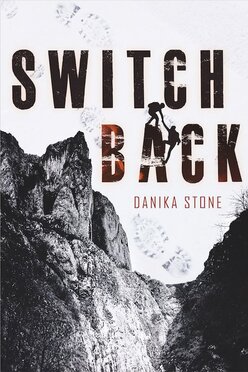




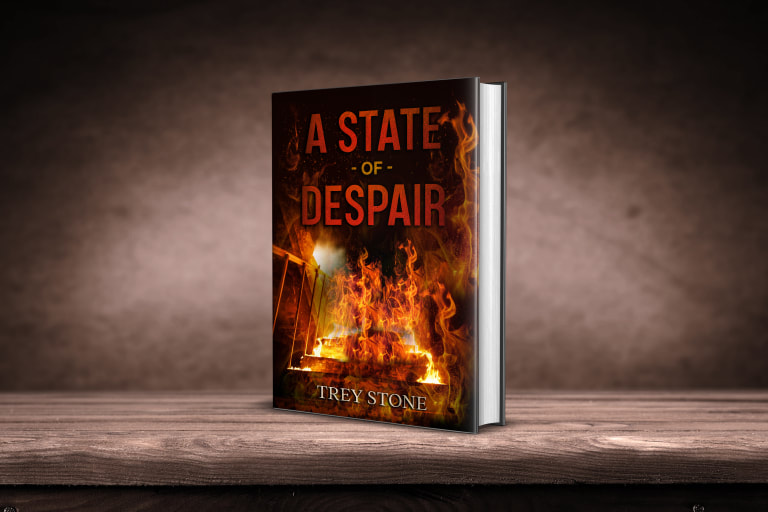
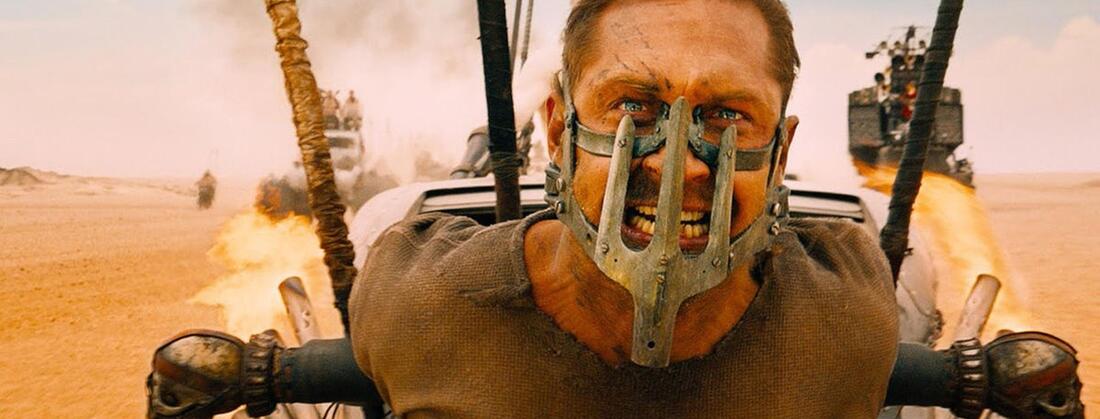
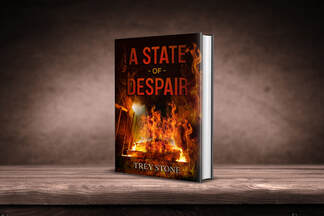


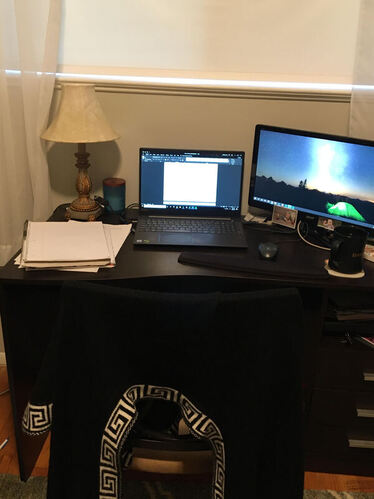
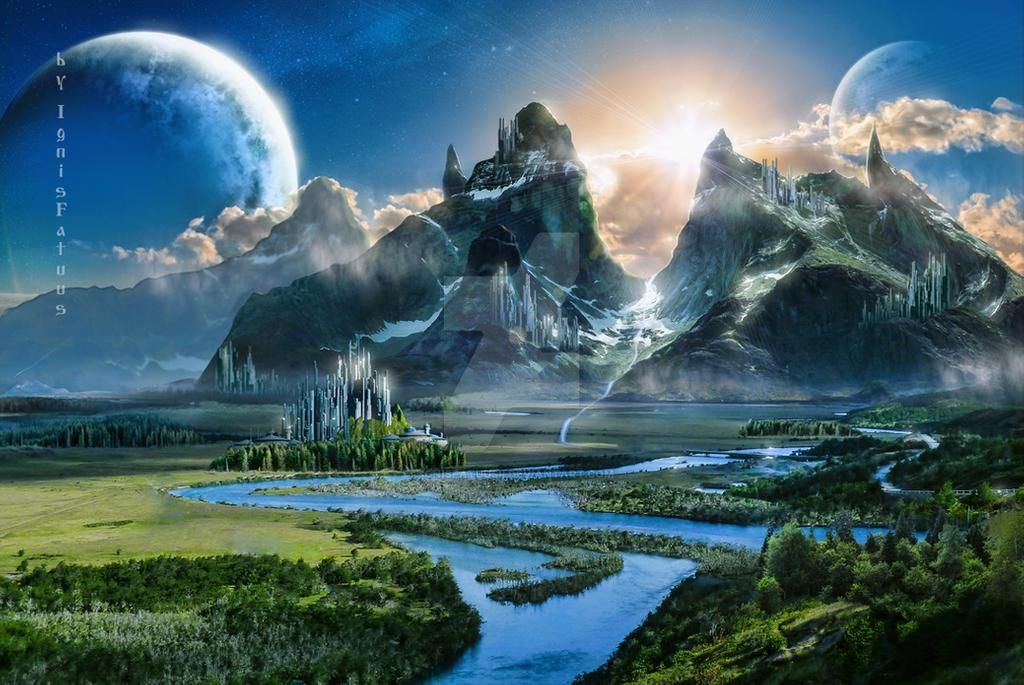
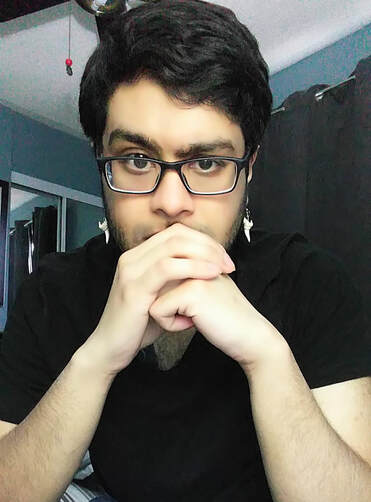

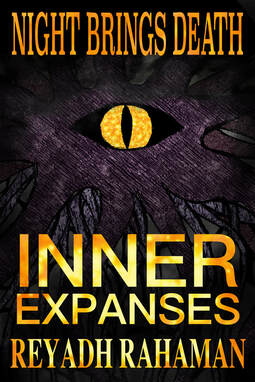





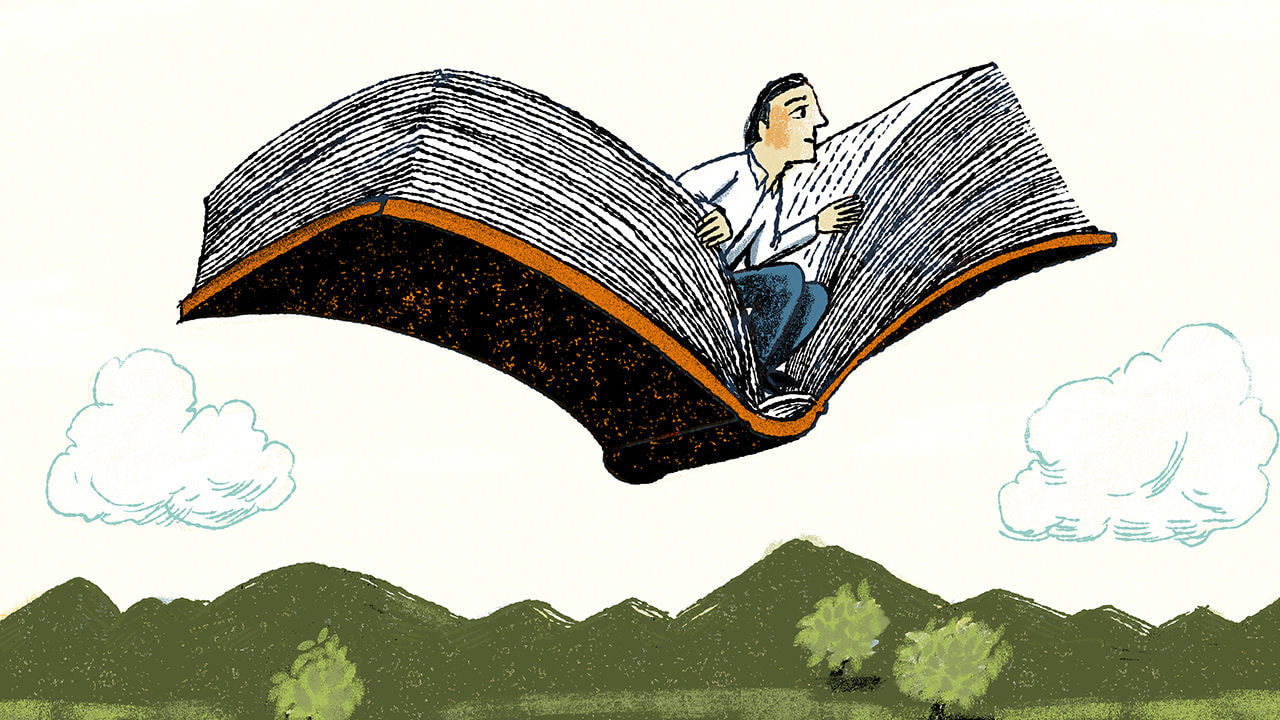


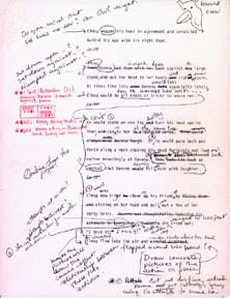
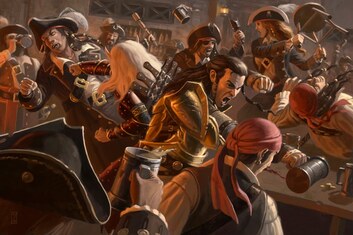
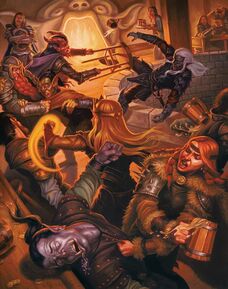
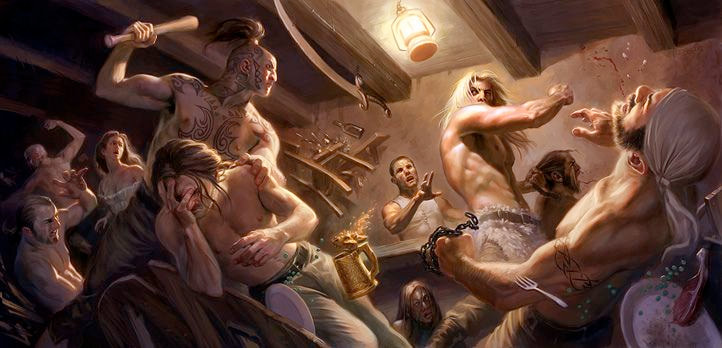
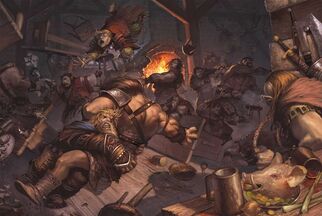

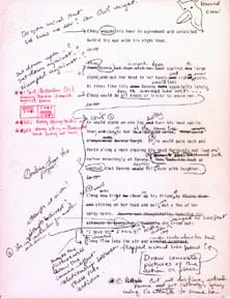






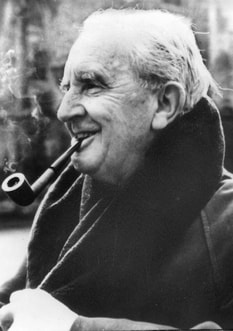

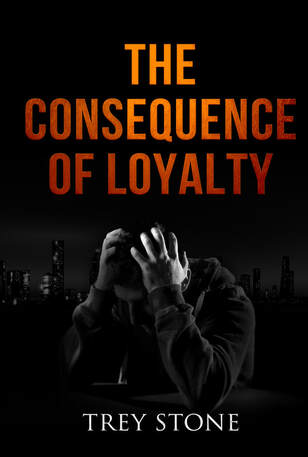


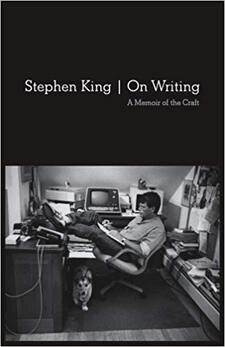
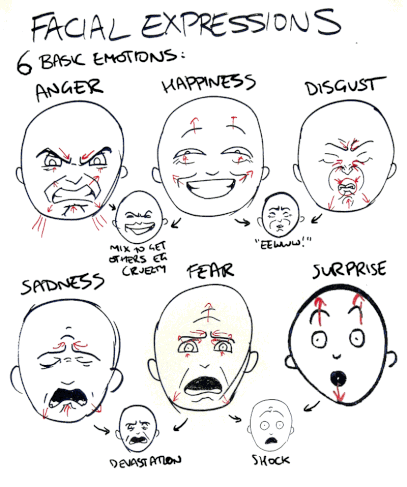
 RSS Feed
RSS Feed
